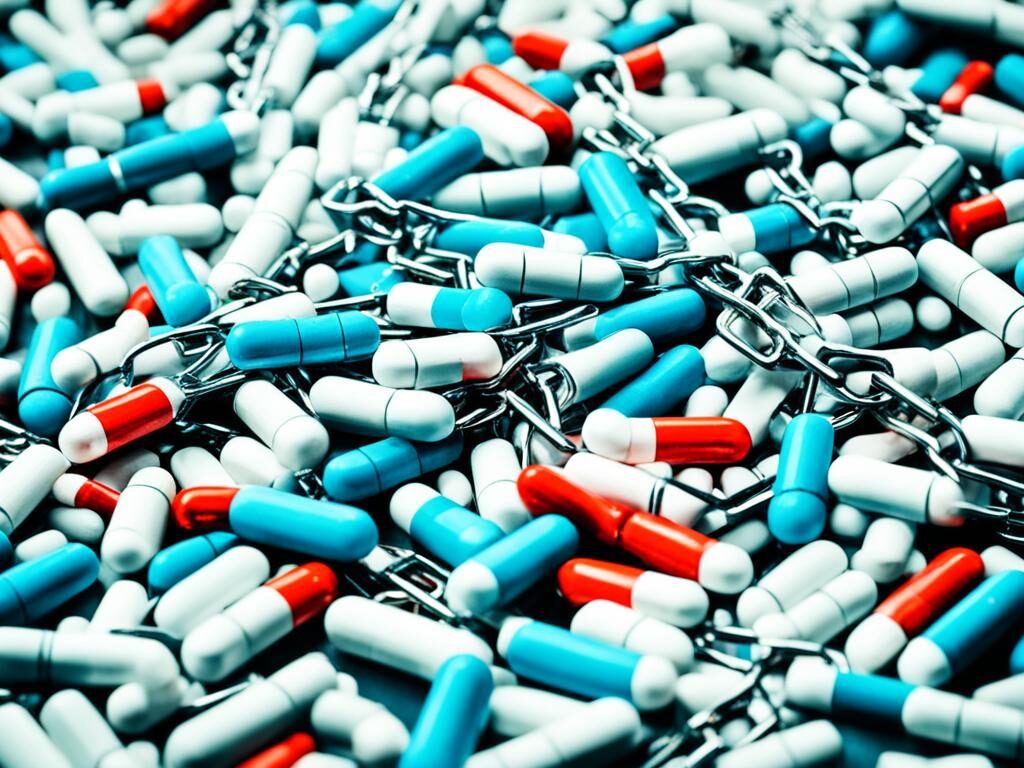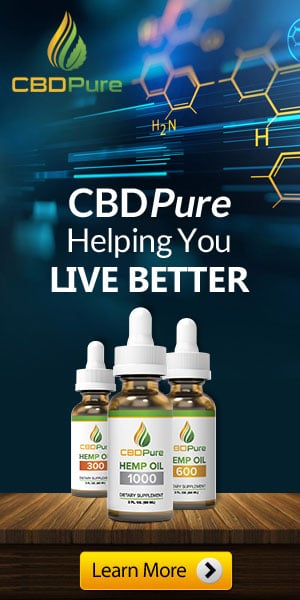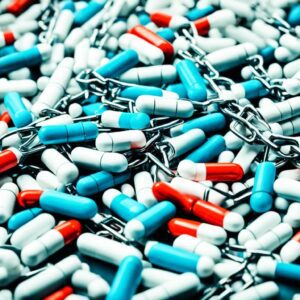The world of food production is often shrouded in mystery and secrecy, with powerful corporations like Monsanto and Bayer exerting tremendous influence and control over the food supply. From the creation of genetically modified crops to the pervasive use of toxic chemicals like glyphosate in Roundup weed killer, the impact of these practices on human health and the environment remains a topic of intense debate and scrutiny. Despite growing awareness and activism, the full extent of the harm caused by these practices may never be fully known, leaving us to grapple with the haunting question: what other secrets are lurking in our food?
Monsanto, a multinational agrochemical and biotechnology corporation has faced concerns about its impact on the environment and public health which has been a contentious issue for many years.
Monsanto was at the center of controversy for its production of genetically modified organisms (GMOs) and its use of toxic chemicals like glyphosate, the active ingredient in its Roundup herbicide, before and after Bayer Pharmaceuticals bought the company.
Prior to the merger, Monsanto had been accused of putting profits over public health and environmental concerns, and many advocates and scientists have raised concerns about the long-term effects of Monsanto’s products on human health and the planet.
Monsanto created toxic chemicals that have resulted in the death of people, livestock, ecosystems, and other organisms.
The company’s flagship product RoundUp has been linked to cancer and other serious health problems.
In addition, Monsanto has been accused of using questionable tactics to promote its products, such as funding research that supports its own products and suppressing research that is critical of them.
Monsanto’s history of harm and corruption
Monsanto’s origins can be traced back to the early 20th century when the company began as a small chemical business producing saccharin and vanillin.
However, it wasn’t until the 1960s that the company became embroiled in controversy, due to its involvement in the Vietnam War.
During the war in Vietnam, Monsanto produced Agent Orange, a highly toxic herbicide that was sprayed by the US military on the Vietnamese countryside to defoliate the forest and deprive the enemy of cover.
Agent Orange contains dioxin, a highly toxic chemical that has been linked to a host of health problems, including cancer, birth defects, and neurological disorders.
Monsanto and other companies involved in the production of Agent Orange have faced numerous lawsuits and criticism for their role in the Vietnam War and the harm caused to both US veterans and Vietnamese civilians.
While the use of Agent Orange has been banned, the legacy of its toxic effects decades after the war ended is felt in Vietnam as well as on US soldiers who were exposed to the harmful herbicide.
In Vietnam, it is estimated that over three million people were exposed to Agent Orange, with many suffering from a range of health problems such as birth defects of children born to parents who were exposed to the herbicide.
These children have been born with a range of disabilities, including missing limbs, malformed organs, and cognitive impairments.
Other health issues for those exposed
In addition to birth defects, US veterans who were exposed to the herbicide during the war have also experienced a range of health problems, including higher rates of certain types of cancer.
This early chapter in Monsanto’s history highlights the dangers of unchecked corporate power and the need for greater accountability and transparency.
Monsanto began producing genetically modified (GM) crops in the mid-1990s, with the commercial release of RoundUp Ready soybean seeds in 1996.
These crops were engineered to be resistant to glyphosate, allowing farmers to use the herbicide to kill weeds without harming their crops.
However, concerns were raised about the safety and environmental impact of GM crops, as well as the potential for genetic contamination of non-GM crops.
Despite these concerns, Monsanto continued to aggressively market its genetically modified seeds and herbicides, cornering the seed market and making it difficult for farmers to grow crops without using Monsanto’s products.
Unethical tactics Monsanto used
In recent years, Monsanto has faced numerous legal challenges related to its products’ health and environmental impacts.
In 2018, a California jury awarded $289 million in damages to a groundskeeper who claimed that exposure to RoundUp caused his terminal cancer.
The verdict was later reduced to $78 million, but the case sparked a wave of similar lawsuits and calls for greater regulation of glyphosate-based herbicides.
Internal records have been uncovered that show Monsanto engaged in unethical practices to promote its products, including RoundUp.
These records reveal that Monsanto wanted to ghostwrite scientific research in order to skew the outcome in favor of the safety of RoundUp by downplaying and suppressing research that raised concerns about the herbicide.
In one email, a Monsanto executive suggested that the company could hire academics to write papers that would “find us something” favorable for RoundUp.
Monsanto’s tried to discredit the International Agency for Research on Cancer (IARC). In their internal documents, they anticipated that glyphosate would be classified as a probable or possible human carcinogen and laid out a plan to attack the scientists and discredit their work.
Monsanto’s tactics to manipulate science
One tactic they employed was to publish a series of papers that contradicted IARC’s findings to discredit their work. However, they did not want these papers to appear as though they were produced by Monsanto but rather wanted them to appear as independent publications.
These papers were ultimately published in the Critical Reviews in Toxicology journal in 2016, under the guise of an “independent review.”
These papers were found to be completely inaccurate, despite claims in the acknowledgments section of the journal that no one from Monsanto reviewed or contributed to them.
Internal emails later revealed that Monsanto not only reviewed the papers but also paid some of the authors under undisclosed deals.
Furthermore, they heavily edited and wrote parts of the papers which prompted the journal editors to express concern and request that Monsanto and the scientists involved provide a new acknowledgment and declaration of interest.
Nevertheless, the papers are still in circulation and are still labeled as an “independent review.”
Ghostwriting by Monsanto raises concerns
Academic scientists whose names and likenesses appear on websites with articles that appear to be independent but were actually ghostwritten by Monsanto.
However, internal Monsanto documents revealed that a PR firm from Monsanto wrote the copy under the professor’s name.
The internal records also suggest that Monsanto had close ties to the Environmental Protection Agency (EPA) and other regulatory agencies, which some have argued contributed to a lack of oversight and regulation of RoundUp and other glyphosate-based herbicides.
These revelations about Monsanto’s practices have sparked widespread criticism and calls for greater transparency and regulation of the agrochemical industry.
Many argue that these practices put public health and the environment at risk and that more needs to be done to hold companies accountable for the safety of their products.
Despite these efforts, concerns about the safety of RoundUp weedkiller have continued to mount, with studies linking the herbicide to cancer, birth defects, and other health problems.
In addition, glyphosate is so pervasive that it’s in the air we breathe, our water, our soil, and our food, and it’s no wonder that it’s even found increasingly in our bodies.
Monsanto played a major role in the development and promotion of genetically modified organisms (GMOs). These crops are created by using a gene-splicing gun to insert foreign genes, often from bacteria or viruses, into the DNA of a plant.
One of the most commonly used genes in GMOs is the Bacillus thuringiensis (Bt) gene, which produces a toxin that is lethal to insects.
When insects ingest glyphosate, it damages their digestive tract, causing them to starve to death.
While the idea behind GMOs was to create crops that were more resistant to pests and could yield higher harvests, concerns have been raised about the unintended consequences of these crops.
A cascade of unintended consequences
The insertion of foreign genes into a plant’s DNA can set off a cascade of unpredictable outcomes, and it’s not always clear what the long-term impacts of these changes will be.
Whitewash: The Story of a Weed Killer, Cancer, and the Corruption of Science is a 2017 non-fiction book by American investigative journalist, and former senior Reuters correspondent, Carey Gillam.
Her book is a gripping investigation into one of the most controversial issues in the history of food and agriculture.
With new evidence of corporate influence, Gillam exposes how the introduction of a chemical (glyphosate) has devastated farm families with cancers and the scientists who spoke out against it.
The book delves into the arm-twisting of regulators who ignored safety concerns and the industry’s secret communications that reveal Monsanto’s efforts to manipulate public perception.
Whitewash is a chilling reminder of the consequences of putting corporate interests ahead of public safety, exposing the power and politics behind the hazards of one chemical and its devastating impact on society.
The toxic effects of Roundup on pollinators
One of the most well-known concerns about GMOs is the use of glyphosate, which works by interfering with a specific enzyme that is essential for plant growth.
But it has also been shown to be harmful to non-target organisms, such as insects.
Bees are incredibly important pollinators that play a vital role in our food supply and the health of our ecosystems. Without bees, many fruits, vegetables, and nuts would not exist, and our food system would collapse.
Bees also pollinate crops that are used to feed livestock, which makes them essential for the production of meat, dairy, and eggs.
Beyond their role in food production, bees also help maintain the biodiversity of our natural habitats by pollinating plants that provide homes and food for other animals.
There has been a significant decline in bee populations worldwide, and it’s a concern for environmentalists and scientists alike, with potentially devastating consequences for our food supply.
Bees are critical to the health and well-being of our planet
Bees are responsible for pollinating a significant proportion of the world’s crops, but their populations have been declining rapidly in recent years.
Many factors contribute to this decline, including habitat loss, climate change, and the use of pesticides, particularly glyphosate.
While glyphosate in Roundup is effective at killing weeds, it also has a detrimental effect on bees.
Glyphosate can disrupt the bees’ gut microbiome, making them more susceptible to disease and reducing their ability to forage and navigate.
Additionally, glyphosate can also kill off the plants that bees rely on for food, further reducing their populations.
Studies have shown that bees exposed to glyphosate have higher mortality rates and reduced reproductive success.
This is particularly concerning given the crucial role that bees play in pollinating crops such as almonds, apples, and blueberries, which rely heavily on bee pollination.
Without bees, these crops and many others would suffer significant declines in yield, leading to higher prices and potentially even food shortages.
Efforts are being made to mitigate the harm caused by glyphosate and other pesticides to bee populations, including the development of alternative pest control methods and the restoration of bee habitats.
There is still much work to be done to protect bees
This has led some scientists to question what impact glyphosate might have on humans who consume food crops that have been sprayed with the herbicide.
Some scientists and researchers have suggested that glyphosate and GMOs may be linked to the increase in autoimmune diseases, such as autism, that have been observed in recent years.
They point to the fact that glyphosate can damage the gut microbiome, which is essential for a healthy immune system, and can lead to a condition known as intestinal impermeability, or “leaky gut.” This condition has been linked to a range of health problems, including autoimmune diseases.
The Centers for Disease Control and Prevention (CDC) take on glyphosate
The prevalence of autism in the United States has continued to increase from the 1990s to today. In the 1990s, rates of autism were identified as 2 to 7 cases per 1,000 children.
However, the most recent data from the CDC’s Autism and Developmental Disabilities Monitoring Network shows that the prevalence of autism among children in the United States is now 1 in 54, or approximately 18.5 cases per 1,000 children.
This represents a significant increase in the prevalence of autism over the past few decades show a significant increase in autism prevalence over this period, with some estimates suggesting an increase of over 1000% in some regions.
The use of GMOs and glyphosate has become a controversial topic, with some arguing that these technologies are essential for feeding a growing population, while others believe that they pose significant risks to human health and the environment.
Further research on GMOs
Dr. Gilles-Eric Seralini is a French biologist and professor of molecular biology at the University of Caen Normandy in France.
He is known for his controversial research on genetically modified organisms (GMOs) and pesticides, including the 2012 Seralini study which found health issues in rats fed with GM corn and exposed to glyphosate.
Dr. Seralini has been a vocal critic of the agrochemical industry and has advocated for greater transparency and safety testing of GMOs and pesticides.
His research has been met with both praise and criticism from the scientific community and has sparked debate about the safety of GM foods and the influence of corporate interests on scientific research.
The Seralini study, which used rats to examine the long-term effects of consuming genetically modified (GM) corn and exposure to glyphosate, found several health issues, including tumors, liver and kidney damage, hormonal disturbances, and early death.
In addition, the study noted that some of the rats showed signs of chronic inflammation, which is associated with various diseases, including cancer.
The long-term effects of consuming genetically modified (GM) corn
To achieve this, Seralini and his team used the same types of rats and a similar methodology as Monsanto did in their studies. However, there were some notable differences.
The Seralini study was much longer in duration than Monsanto’s studies. The study lasted for two years, which is equivalent to the lifespan of a rat, while Monsanto’s studies only lasted 90 days.
This extended duration allowed the Seralini study to track the long-term effects of consuming GM corn and glyphosate exposure, which were not detectable in Monsanto’s shorter study.
In addition, the Seralini study also used a larger sample size and tested several different doses of GM corn and glyphosate, while Monsanto only tested one dose of each. This allowed the Seralini study to detect any potential dose-response effects of GM corn and glyphosate exposure.
Monsanto argued that the Seralini study was poorly designed and did not meet regulatory standards. In fact, Seralini did use the same methodology as Monsanto, the same type of rats, and did meet the regulatory standards expected in research of this nature.
Yet another lab-creation by Monsanto
High fructose corn syrup (HFCS) is a sweetener commonly found in processed foods and beverages.
It is a GM lab-created food that has become ubiquitous in the food supply, with some estimates suggesting that it is present in up to 70% of processed foods in the United States.
This sweetener is a result of a chemical process that converts genetically modified corn starch into glucose, and then further processes it to create a syrup that is high in fructose.
Monsanto has played a significant role in the production of HFCS, as they have developed genetically modified corn that is resistant to glyphosate, which is used to kill weeds around the crops.
The widespread use of glyphosate has led to a sharp increase in the use of genetically modified corn, which is the primary source of HFCS.
The consumption of HFCS has been linked to several health problems, including obesity, type 2 diabetes, and liver damage.
Research shows HFCS is metabolized differently
HFCS is commonly found in soft drinks, baked goods, processed snacks, and many other foods. Checking the labels of processed foods can help consumers identify products that contain HFCS and make informed decisions about what they consume.
As the use of HFCS continues to grow, it is important for consumers to be aware of the health risks associated with this sweetener and to take steps to limit their consumption of it.
As of 2021, 38 countries have completely banned the cultivation and import of GMOs, including Algeria, Belize, Bhutan, Fiji, Kyrgyzstan, Madagascar, Peru, and Venezuela.
There are over 60 countries that have implemented partial bans or labeling requirements for GMOs, including countries in the European Union, Japan, Australia, New Zealand, and several countries in Africa and South America. Some countries, such as Russia, have even banned the import of GM crops altogether.
The most common GM crops that are grown around the world include soybeans, corn, cotton, canola, and sugar beets.
These crops have been genetically modified to be resistant to pests and herbicides, such as glyphosate.
Consequences to farmers
Farmers around the world who have used Roundup on their crops have reported a range of issues, including increased costs, reduced yields, and the development of herbicide-resistant weeds.
These problems can be particularly challenging for small-scale farmers who may not have the resources to invest in expensive GM seeds and herbicides.
Monsanto has been accused of using manipulation and coercion to get farmers to buy their products.
The company has been criticized for aggressively patenting its seeds, making it nearly impossible for farmers to grow crops without using their products.
Monsanto has also been accused of intimidating farmers who attempt to save and replant their seeds, which is a common practice among farmers around the world.
Despite these concerns, the use of GM crops continues to be widespread around the world and the associated pesticides could have negative effects on both the environment and human health.
One of the major concerns about GM crops is the development of herbicide-resistant weeds, which can lead to an increase in herbicide use and a decrease in crop yields which can have long-term impacts on the environment and the economic viability of farming.
Another concern is the potential for the genetic modification of crops to have unintended consequences, such as the transfer of genes to wild species of crops or other plants, or the creation of new allergens or toxins.
The use of pesticides, such as glyphosate, has also raised concerns about the potential impacts on human health. Studies have linked exposure to glyphosate to a range of health issues, including cancer, reproductive problems, and developmental disorders.
Monsanto 2.0 – the merger to reduce the negative public perception of the company
In 2018, the German chemical and pharmaceutical company, Bayer, acquired Monsanto for $63 billion, creating what some have called “Monsanto 2.0”.
Bayer’s acquisition of Monsanto has raised concerns among environmental and public health advocates, who worry that the company’s history of producing toxic chemicals and genetically modified organisms (GMOs) will continue under the new ownership.
Some worry that the merger with Bayer could further consolidate the seed market and limit farmers’ options when it comes to purchasing seeds.
The new company has a significant share of the market in both seeds and pesticides, which could lead to increased prices and reduced competition.
The merger of Bayer and Monsanto has raised significant concerns among environmental and public health advocates, who worry that the new company will continue to prioritize profits over public safety and environmental health.
Despite numerous lawsuits and mounting evidence linking Monsanto’s Roundup herbicide to cancer and other health problems, Bayer has continued to defend the safety of its products.
The company has faced criticism
Some have accused the company of downplaying the risks of Roundup and attempting to discredit the scientists and advocates who have raised concerns about the chemical.
Critics have also expressed concern about the lack of transparency and labeling when it comes to Monsanto’s products, including those now owned by Bayer.
Many argue that consumers have a right to know whether the products they are buying contain potentially harmful chemicals, yet labeling laws in the US and other countries remain lax.
The long-term impacts of GM crops on the environment and human health are complex and multifaceted, and much more research is needed to fully understand the risks and benefits of this technology.
In the meantime, it’s important for consumers to be aware of the potential risks associated with GM crops and to make informed choices about the food they eat.
How you can make informed choices
- Organic foods are grown without the use of synthetic pesticides, including glyphosate. Choosing organic foods can help reduce your exposure to glyphosate and other potentially harmful chemicals.
- Products that are labeled as non-GMO are made without the use of genetically modified organisms, which may be sprayed with glyphosate. By choosing non-GMO products, you can avoid potential exposure to glyphosate.
- Look for foods that are made without the use of glyphosate, and check for other potentially harmful ingredients, such as artificial colors, flavors, and preservatives.
- Highly processed foods often contain a wide range of additives and preservatives, some of which may be harmful to your health. By choosing whole foods and cooking meals from scratch, you can avoid potential exposure to glyphosate and other harmful chemicals.
- Supporting local farmers who use sustainable farming practices can help reduce your exposure to glyphosate and other harmful chemicals, while also supporting the local economy.
By taking these steps, consumers can make informed choices about the food they eat and reduce their risk of glyphosate exposure.
There are several other ways that people can help raise awareness
- People can learn more about the products produced by these companies and the potential health and environmental risks associated with them
- People can support efforts to increase transparency and labeling requirements for products produced by companies like Monsanto and Bayer.
- People can advocate for stronger regulations on companies that produce potentially harmful products, including advocating for stricter safety testing requirements.
- By supporting organic and non-GMO farming practices, consumers can help create a market for safer and more sustainable food production methods.
- People can get involved in local and national activism efforts focused on environmental and public health issues, including efforts to hold companies like Monsanto and Bayer accountable for their actions.
Local and national activism efforts
- Contacting elected officials and letting them know your concerns about the harmful products produced by companies like Monsanto and Bayer can be an effective way to hold these companies accountable. It can also help to advocate for stronger regulations and better labeling requirements.
- Joining in public demonstrations and protests can also be an effective way to raise awareness about the harmful products produced by these companies and demand change. Demonstrations can include marches, rallies, and other events.
- Supporting local and national advocacy groups that focus on environmental and public health issues can also make a difference. These groups often work to hold companies like Monsanto and Bayer accountable and promote safer, more sustainable practices.
- Educating others about the harmful products produced by these companies and how to protect themselves can also be a powerful tool. This can include sharing information online, speaking with friends and family members, and getting involved in community education efforts.
- Writing to elected officials and urging them to pass legislation requiring the labeling of GMOs and harmful chemicals can also help make a difference.
- Another significant way you can make an impact is with the almighty dollars you spend on safer herbicides and safer foods, while also reducing the carbon footprint associated with transportation and choosing to support organic farming by purchasing organic produce.
The issue surrounding glyphosate (Roundup)
Organic farming practices prohibit the use of synthetic herbicides and pesticides, which can significantly reduce the exposure of individuals to harmful chemicals.
Consumers can also look for products that have been certified by third-party organizations such as the Non-GMO Project or the USDA Organic certification.
These certifications ensure that products have been produced using sustainable and environmentally friendly practices and do not contain genetically modified organisms (GMOs).
While the debate over the safety of GMOs and glyphosate continues, it is clear that consumers and policymakers need to take action to reduce their exposure to these products.
By supporting organic and non-GMO agriculture, advocating for stronger labeling laws, and promoting research into the long-term effects of these products on human health and the environment, we can work towards a safer and more sustainable food system.
Consumers have the power
By supporting companies that prioritize public health and environmental sustainability people can exert their power with the all-mighty dollar.
However, we must not lose hope in the face of these challenges. Many individuals and groups are working tirelessly to demand better regulations and hold corporations accountable for their actions.
By staying informed, speaking out against injustice, and supporting positive change, we can work towards a healthier and more just world for all.
It may not happen overnight, but with dedication and determination, we can create a better future for ourselves and future generations.
- Internal records have been uncovered regarding Monsanto’s practices to promote its products, including RoundUp.
- The records suggest that Monsanto engaged in unethical practices.
- Monsanto wanted to ghostwrite scientific research to skew the outcome in favor of the safety of RoundUp.
- There were growing concerns about the health and environmental impacts of RoundUp.
- Glyphosate is the active ingredient in Monsanto’s Roundup herbicide.
- There is mounting evidence linking glyphosate to cancer and other health problems.
- Monsanto played a major role in the development and promotion of genetically modified organisms (GMOs).
- GMOs are created by using a gene-splicing gun to insert foreign genes into the DNA of a plant.
- The Bacillus thuringiensis (Bt) gene is one of the most commonly used genes in GMOs, producing a toxin lethal to insects.
- Glyphosate damages the digestive tract of insects, causing them to starve to death.
- Concerns have been raised about the unintended consequences of GMOs, as the insertion of foreign genes into a plant’s DNA can have unpredictable outcomes with unclear long-term impacts.
- Bayer has continued to defend the safety of its products despite lawsuits and concerns raised by scientists and advocates.
- Labeling laws in the US and other countries are considered to be lax when it comes to potentially harmful chemicals in products.
- The merger could further consolidate the seed market and limit farmers’ options for purchasing seeds.
- The merger of Bayer and Monsanto has raised concerns among environmental and public health advocates.






























